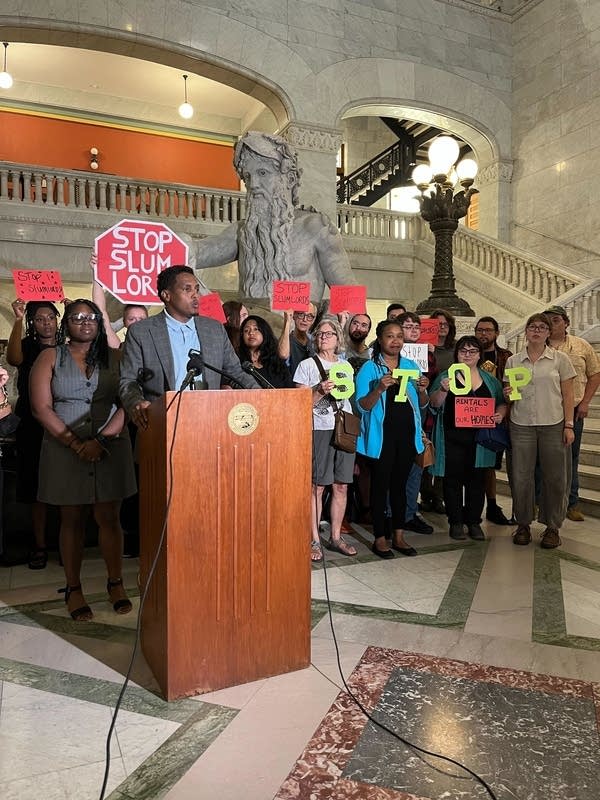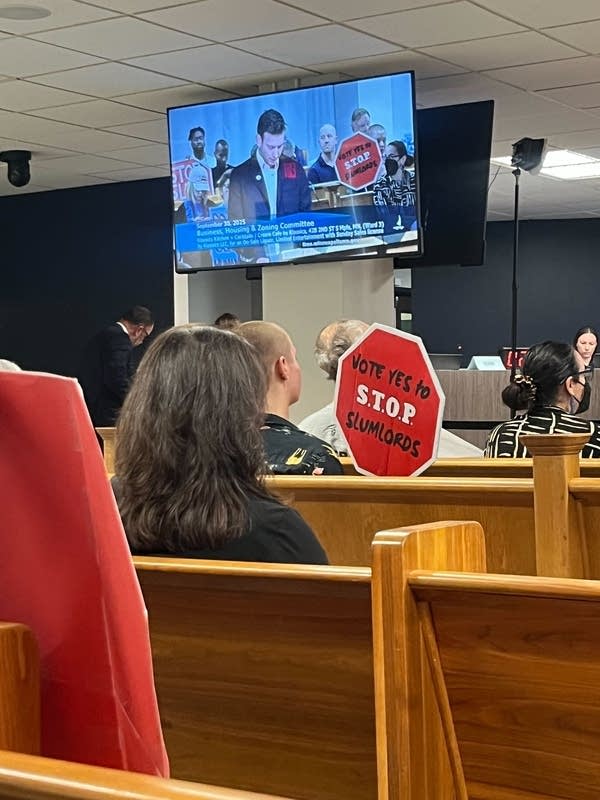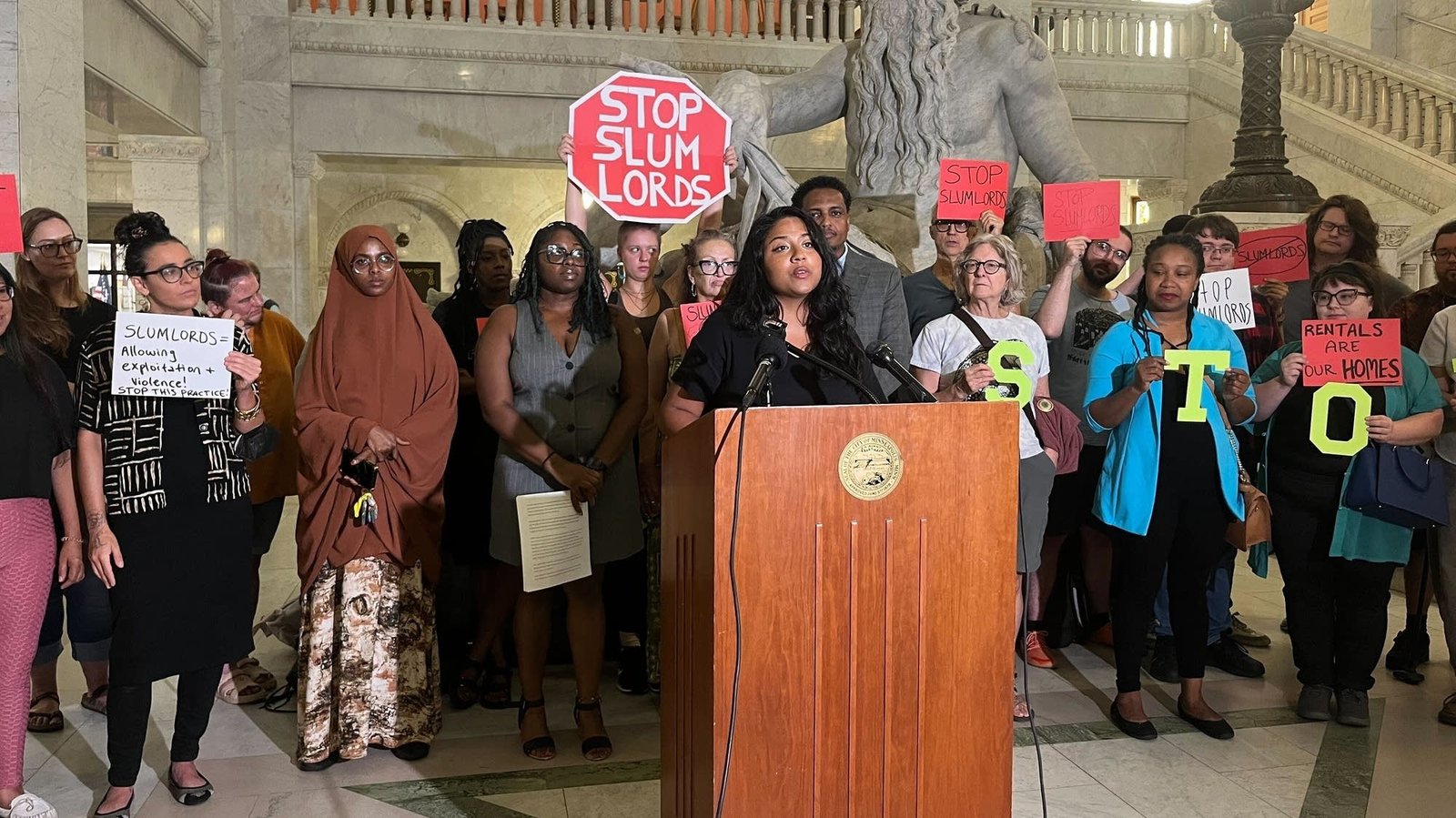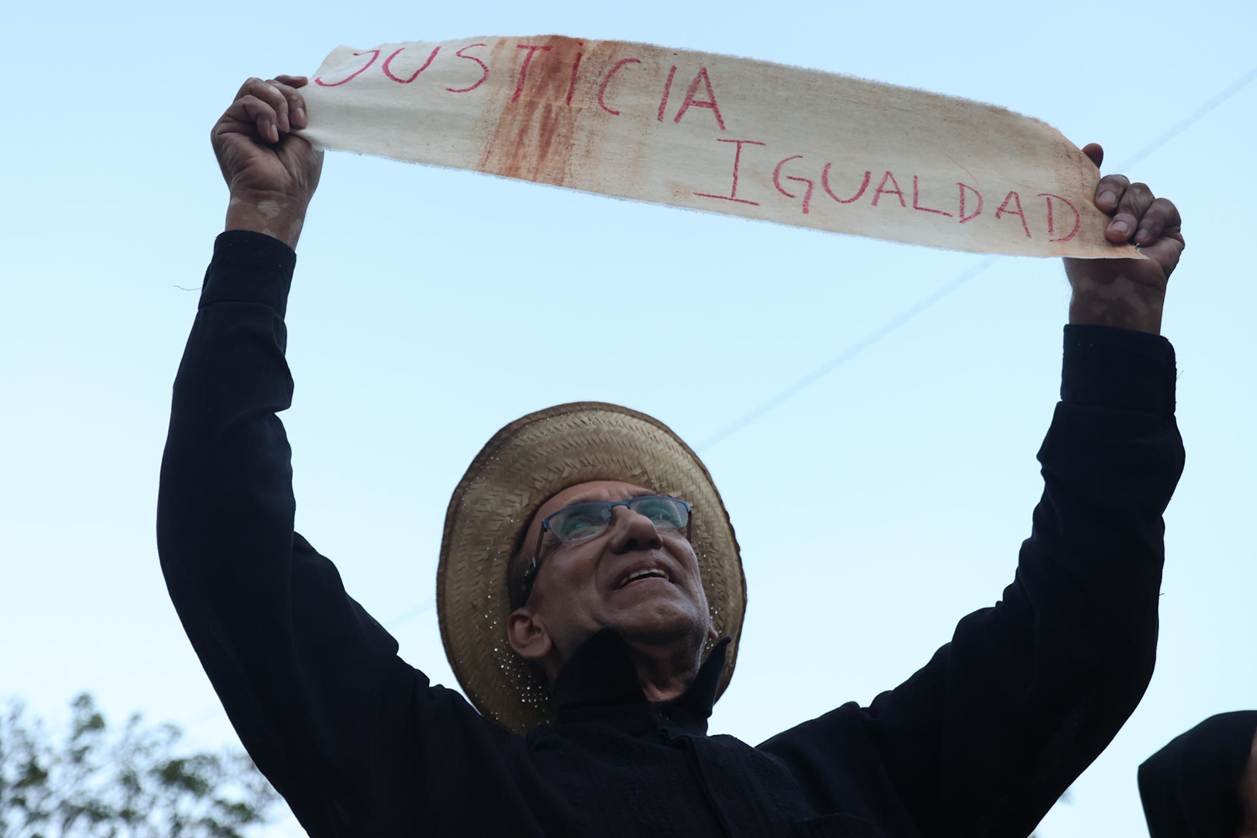Loring Park resident Catherine Menick is moving across the river to St. Paul. For the past three years, she said a collection of health and safety violations that have gone unaddressed — or taken too long to be addressed — have made her Minneapolis apartment too big of a risk.
“We have to go. We have to leave this place,” she said. “I can’t be safe here. Nobody can.”
She said the violations have included an unsecured door that allowed squatters to come through, before residents found out it was blocked off when they couldn’t escape during a false fire alarm. She’s dealt with mold, brown water sitting in her dishwasher, smoke detectors that don’t detect anything and a flooding pool and parking garage that has her worried about the tall building’s foundation.
Altogether, a collection of violations flagged by the city have placed the property on the Tier 3 list — the category for rentals that pose the highest risk.
But under a new ordinance, landlords like Menick’s will have to come before the Minneapolis City Council for a vote if they want to renew their rental licenses. The council will have the ability to revoke Tier 3 licenses, but authors of the ordinance say the goal is not to do that but instead to apply pressure so property owners fix what needs fixing.
Tenants will also be able to speak at public hearings for the votes.
The council passed the ordinance Thursday, 12-0. Council member Jeremiah Ellison was not present.

Council member Jamal Osman, who co-authored the ordinance, said the council wants to work with landlords to help get them into compliance. Council members worked with the City Attorney’s office to craft a provision that allows landlords to appeal the council’s vote.
“Most landlords are not treating their tenants this way, and so it's important for us to crack down on those who are violating the basic human rights that we have around housing,” Co-author and council member Katie Cashman said. “We do this for liquor licenses and gambling licenses … we don’t normally vote those down, but it does create accountability, so they know that’s always on the table.”
About 2,200 units are Tier 3, which applies to 160 licenses. That makes up less than 1 percent of rental licenses in the city and less than 2 percent of the city’s rental units, according to city data shared by the ordinance’s authors.
The ordinance will not go into effect until 2027, which council members said will give property owners time to get their properties up to code. It also gives some time for council members to work on protections addressing concerns about resident displacement, if the last resort is taken.
Several residents came forward to support the ordinance during a public hearing late last month, many sharing stories of mold and other health concerns they said property management hasn’t addressed. Some complained that their calls to 311 to report violations didn’t result in meaningful changes.
Minneapolis NAACP president Cynthia Wilson urged the council to pass the ordinance.

“The amount of complaints that come across the NAACP desk in a day in reference to housing and slum lords is unbelievable,” she said. “I mean, people’s human rights are being violated … and some of these landlords don’t even live here, they live out of state. They don’t care about these folks.”
However, others at the public hearing raised some concerns, including over the displacement of tenants. That was a sentiment expressed by Cecil Smith, the CEO of the Minnesota Multi-Housing Association, whose members include apartment management companies, property owners and developers.
Last month, Regulatory Services Director Enrique Velazquez wrote a memo to the council saying he and other staff “do not support it in its present state.”
“The Department is actively making operational improvements to hold negligent rental property owners accountable and using all available tools to do so,” he wrote.
He said delays in the review and approval of licenses could leave residents at risk of displacement and expose property owners to risk, as those in unlicensed rentals must vacate within 30 days. Velazquez also said it would put an extra burden on regulatory staff, diverting them from inspections and delaying the licensing process.
Under the current process, Tier 3 property owners pay a higher fee to renew their license, as well as fees for violations. When properties receive violations, they accrue points that are then tallied to designate tier levels. Tier 3 properties have more than 40 points.
Council members encouraged tenants to keep reporting issues to 311, which alerts city inspectors of concerns to follow up on and collect data to understand how properties are being maintained across the city.




